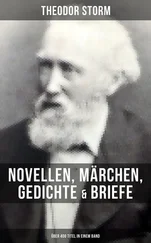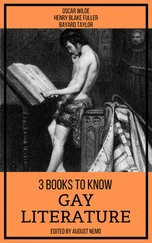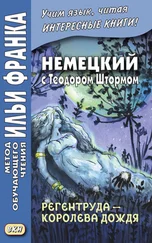––––––––

MAY 27.
I find I have fallen into raptures, declamation, and similes, and have forgotten, in consequence, to tell you what became of the children. Absorbed in my artistic contemplations, which I briefly described in my letter of yesterday, I continued sitting on the plough for two hours. Toward evening a young woman, with a basket on her arm, came running toward the children, who had not moved all that time. She exclaimed from a distance, "You are a good boy, Philip!" She gave me greeting: I returned it, rose, and approached her. I inquired if she were the mother of those pretty children. "Yes," she said; and, giving the eldest a piece of bread, she took the little one in her arms and kissed it with a mother's tenderness. "I left my child in Philip's care," she said, "whilst I went into the town with my eldest boy to buy some wheaten bread, some sugar, and an earthen pot." I saw the various articles in the basket, from which the cover had fallen. "I shall make some broth to-night for my little Hans (which was the name of the youngest): that wild fellow, the big one, broke my pot yesterday, whilst he was scrambling with Philip for what remained of the contents." I inquired for the eldest; and she had scarcely time to tell me that he was driving a couple of geese home from the meadow, when he ran up, and handed Philip an osier-twig. I talked a little longer with the woman, and found that she was the daughter of the schoolmaster, and that her husband was gone on a journey into Switzerland for some money a relation had left him. "They wanted to cheat him," she said, "and would not answer his letters; so he is gone there himself. I hope he has met with no accident, as I have heard nothing of him since his departure." I left the woman, with regret, giving each of the children a kreutzer, with an additional one for the youngest, to buy some wheaten bread for his broth when she went to town next; and so we parted. I assure you, my dear friend, when my thoughts are all in tumult, the sight of such a creature as this tranquillises my disturbed mind. She moves in a happy thoughtlessness within the confined circle of her existence; she supplies her wants from day to day; and, when she sees the leaves fall, they raise no other idea in her mind than that winter is approaching. Since that time I have gone out there frequently. The children have become quite familiar with me; and each gets a lump of sugar when I drink my coffee, and they share my milk and bread and butter in the evening. They always receive their kreutzer on Sundays, for the good woman has orders to give it to them when I do not go there after evening service. They are quite at home with me, tell me everything; and I am particularly amused with observing their tempers, and the simplicity of their behaviour, when some of the other village children are assembled with them.
It has given me a deal of trouble to satisfy the anxiety of the mother, lest (as she says) "they should inconvenience the gentleman."
––––––––
MAY 30.
What I have lately said of painting is equally true with respect to poetry. It is only necessary for us to know what is really excellent, and venture to give it expression; and that is saying much in few words. To-day I have had a scene, which, if literally related, would, make the most beautiful idyl in the world. But why should I talk of poetry and scenes and idyls? Can we never take pleasure in nature without having recourse to art?
If you expect anything grand or magnificent from this introduction, you will be sadly mistaken. It relates merely to a peasant-lad, who has excited in me the warmest interest. As usual, I shall tell my story badly; and you, as usual, will think me extravagant. It is Walheim once more—always Walheim—which produces these wonderful phenomena.
A party had assembled outside the house under the linden-trees, to drink coffee. The company did not exactly please me; and, under one pretext or another, I lingered behind.
A peasant came from an adjoining house, and set to work arranging some part of the same plough which I had lately sketched. His appearance pleased me; and I spoke to him, inquired about his circumstances, made his acquaintance, and, as is my wont with persons of that class, was soon admitted into his confidence. He said he was in the service of a young widow, who set great store by him. He spoke so much of his mistress, and praised her so extravagantly, that I could soon see he was desperately in love with her. "She is no longer young," he said: "and she was treated so badly by her former husband that she does not mean to marry again." From his account it was so evident what incomparable charms she possessed for him, and how ardently he wished she would select him to extinguish the recollection of her first husband's misconduct, that I should have to repeat his own words in order to describe the depth of the poor fellow's attachment, truth, and devotion. It would, in fact, require the gifts of a great poet to convey the expression of his features, the harmony of his voice, and the heavenly fire of his eye. No words can portray the tenderness of his every movement and of every feature: no effort of mine could do justice to the scene. His alarm lest I should misconceive his position with regard to his mistress, or question the propriety of her conduct, touched me particularly. The charming manner with which he described her form and person, which, without possessing the graces of youth, won and attached him to her, is inexpressible, and must be left to the imagination. I have never in my life witnessed or fancied or conceived the possibility of such intense devotion, such ardent affections, united with so much purity. Do not blame me if I say that the recollection of this innocence and truth is deeply impressed upon my very soul; that this picture of fidelity and tenderness haunts me everywhere; and that my own heart, as though enkindled by the flame, glows and burns within me.
I mean now to try and see her as soon as I can: or perhaps, on second thoughts, I had better not; it is better I should behold her through the eyes of her lover. To my sight, perhaps, she would not appear as she now stands before me; and why should I destroy so sweet a picture?
––––––––
JUNE 16.
"Why do I not write to you?" You lay claim to learning, and ask such a question. You should have guessed that I am well—that is to say—in a word, I have made an acquaintance who has won my heart: I have—I know not.
To give you a regular account of the manner in which I have become acquainted with the most amiable of women would be a difficult task. I am a happy and contented mortal, but a poor historian.
An angel! Nonsense! Everybody so describes his mistress; and yet I find it impossible to tell you how perfect she is, or why she is so perfect: suffice it to say she has captivated all my senses.
So much simplicity with so much understanding—so mild, and yet so resolute—a mind so placid, and a life so active.
But all this is ugly balderdash, which expresses not a single character nor feature. Some other time—but no, not some other time, now, this very instant, will I tell you all about it. Now or never. Well, between ourselves, since I commenced my letter, I have been three times on the point of throwing down my pen, of ordering my horse, and riding out. And yet I vowed this morning that I would not ride to-day, and yet every moment I am rushing to the window to see how high the sun is.
I could not restrain myself—go to her I must. I have just returned, Wilhelm; and whilst I am taking supper I will write to you. What a delight it was for my soul to see her in the midst of her dear, beautiful children,—eight brothers and sisters!
Читать дальше













